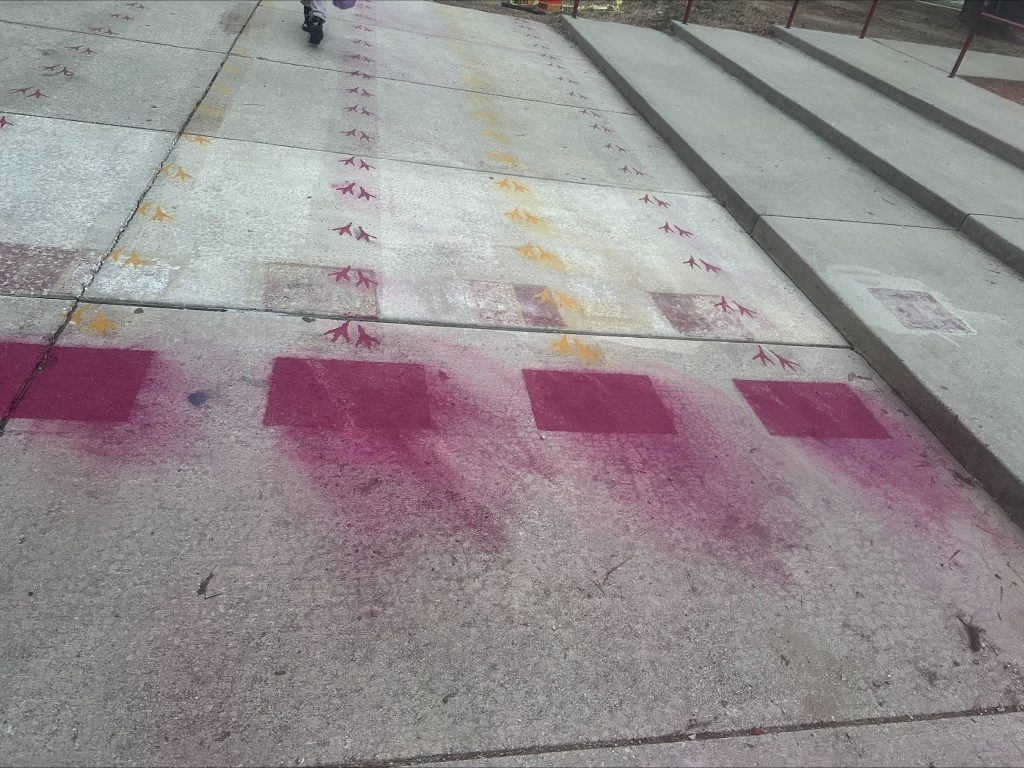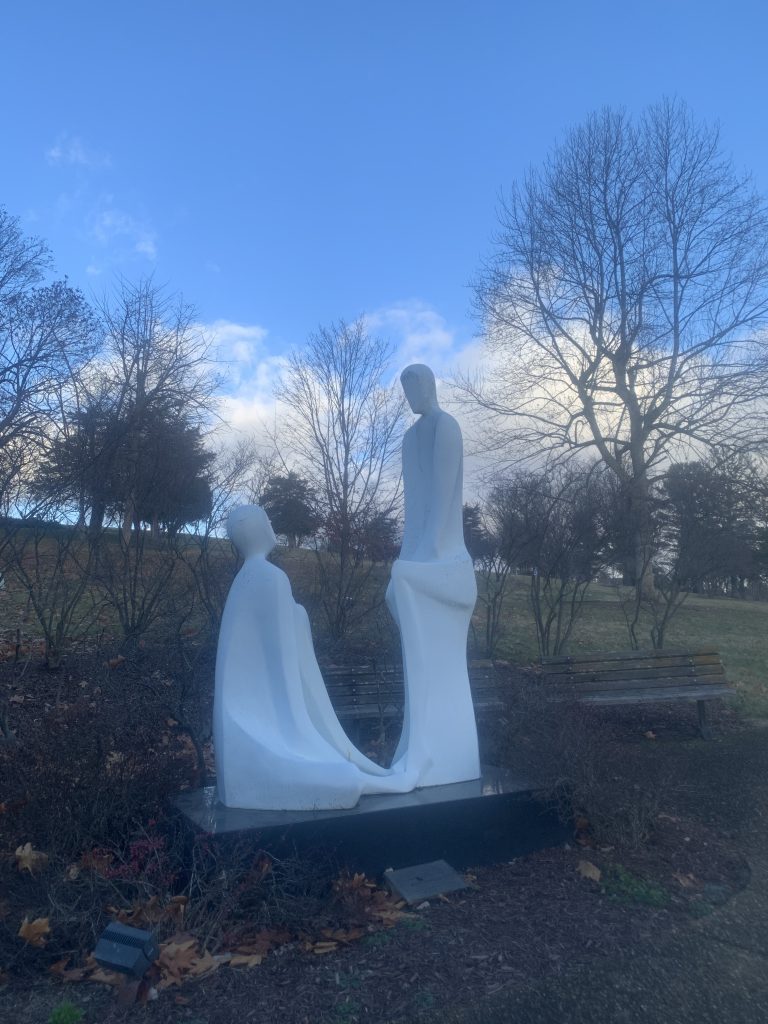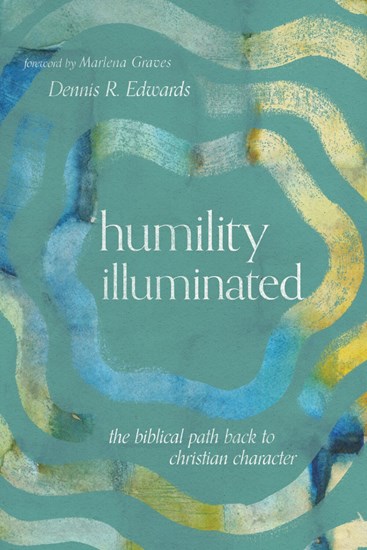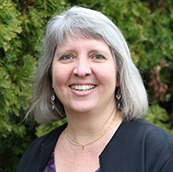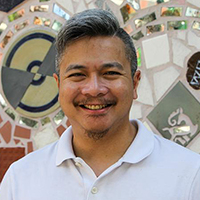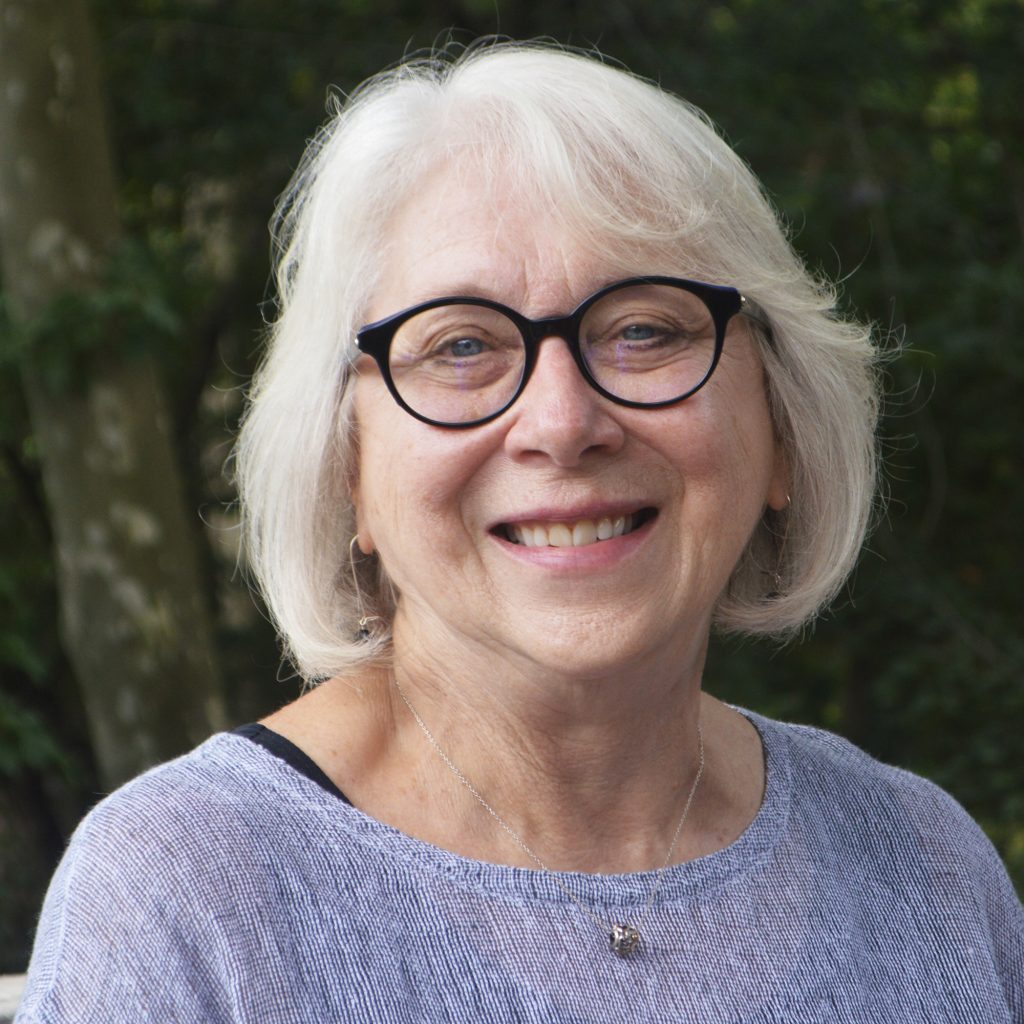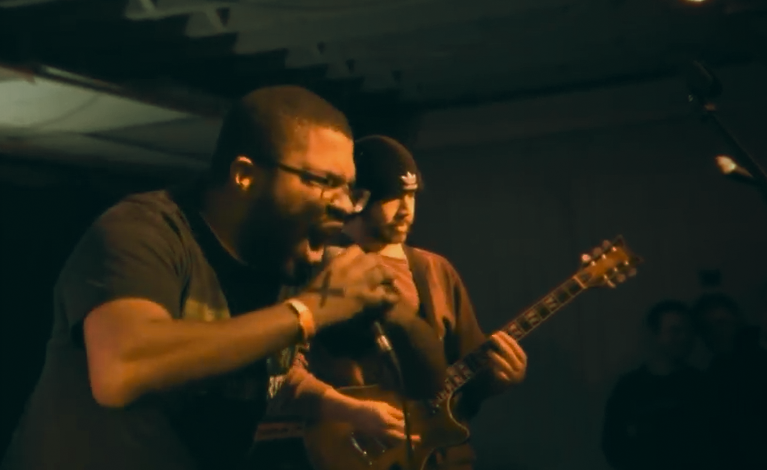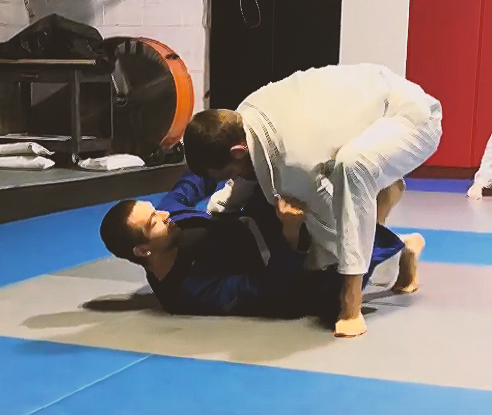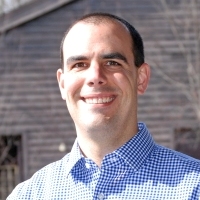by Cindy Angela
The first weekend of May I traveled to Harrisonburg, VA for the first time, to celebrate my graduation at Eastern Mennonite University (EMU). I finally completed my Master’s degree in Transformational Leadership from EMU’s Center of Justice and Peacebuilding (CJP). As my family and I made the five-hour drive from Philadelphia, it felt surreal that I was finally at the finish line.
It has taken me three years to finish this program since I only enrolled part-time while also working for the Conference. I also became pregnant with our son during my last year and took a semester off. While it has not been easy, I was determined to finish well.
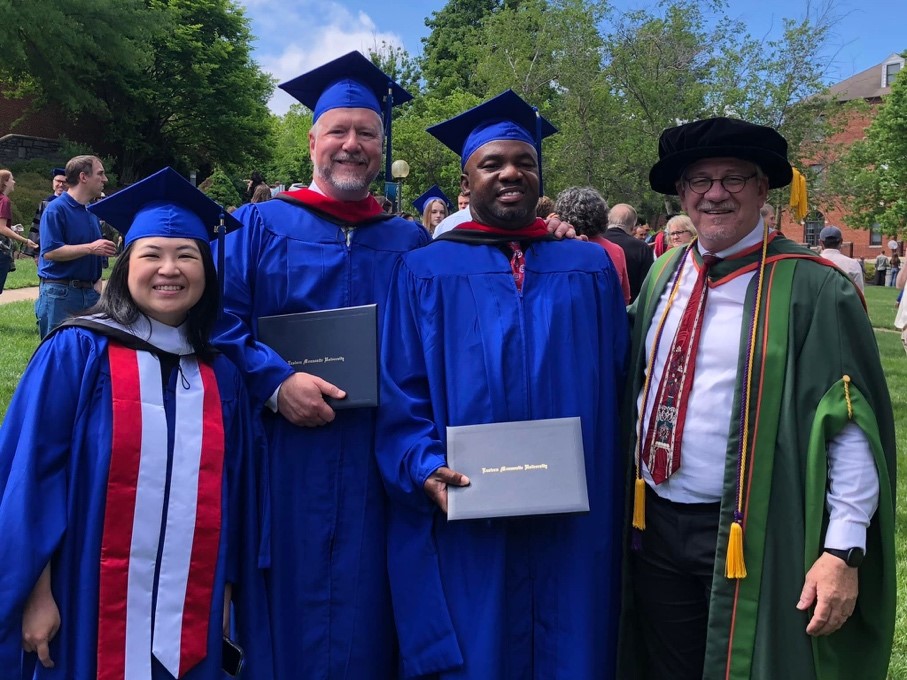
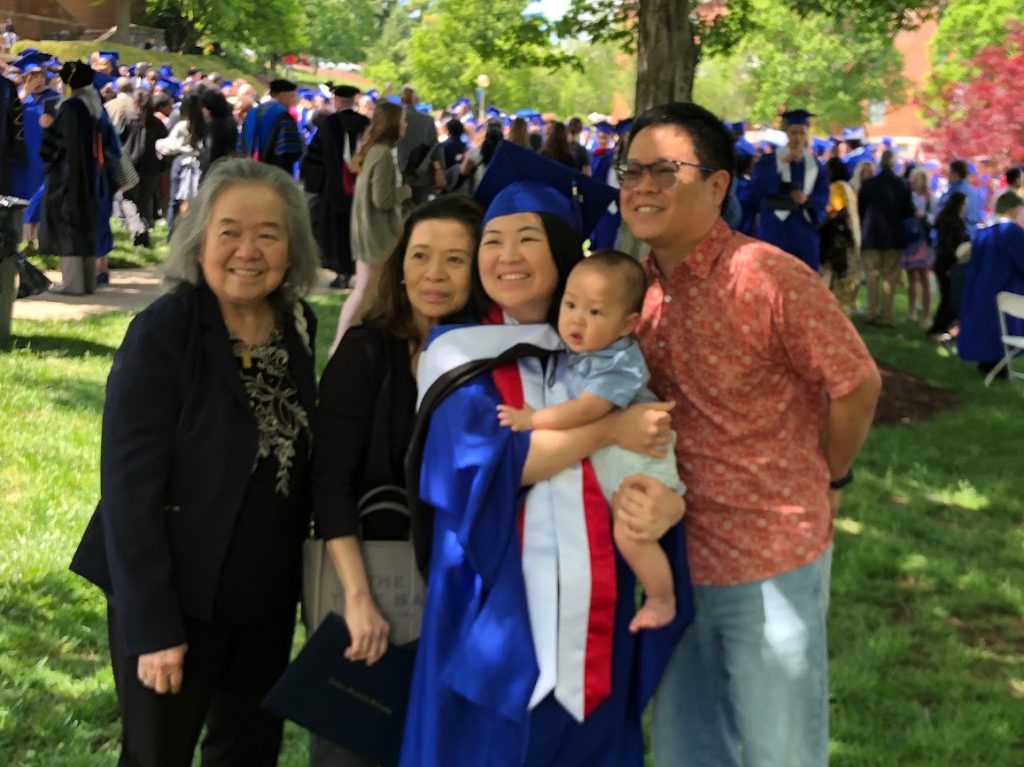
To complete the degree, we were required to make a capstone presentation, which is supposed to sum up our experience of the program. It was hard to decide how to condense years of learning into a one-hour presentation.
After deliberation and prayer, I realized that my capstone project needed to be three things: connected to my work, embracing my new identity as a mom, and a creative outlet.
It finally occurred to me: I wanted to write a children’s book for my son, Noah.
Deciding to Write a Children’s Book
Reading to Noah is one of our favorite activities to do together. Granted, my nine-month-old can’t read yet, but I wanted this book to go beyond introducing shapes, colors, or numbers. I thought about what kind of concepts I want my son to learn. I thought about what kind of mother I want to be.
I kept coming back to the idea of the fruits of the Spirit as mentioned in the Epistle to the Galatians.
“The fruit of the Spirit is love, joy, peace, forbearance, kindness, goodness, faithfulness, gentleness and self-control. Against such things there is no law.” Galatians 5:22-23, NIV
Choosing a Topic
I wanted my children’s book to be more specific than talking about the fruits of the Spirit in broad terms. I started thinking about what it means for me to bring these fruits into our shared work in bringing transformation and reconciliation to this world.
I reflected on conflict and disagreement, something that seems to be omnipresent, even within our Conference. After many sleepless nights and writing during middle-of-the-night feedings, my children’s book was born: When Everybody Just Disagrees: A Tale for Little Peacebuilders.
The book talks about how conflicts are unavoidable, and how we can control how we act and react. I presented my book and the creation process as my capstone presentation (full video here).
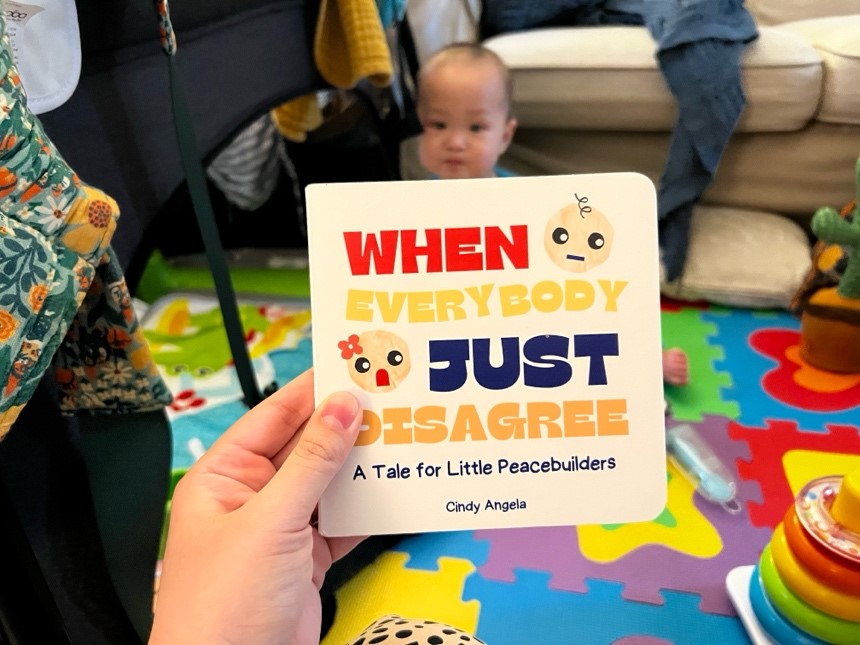
I am happy that I now have this book I can read with my son and share with him as he grows older. I hope that these simple words can inspire him in how transformation can happen through disagreements.
I will carry this with me as I depart from the program and continue finding my place in our shared work as God’s instruments for peace and reconciliation.
You can read the book here.

Cindy Angela
Cindy Angela is the Director of Communication for Mosaic Conference. She attends Philadelphia (PA) Praise Center, and she lives in Philadelphia with her husband, Andy and son, Noah.


